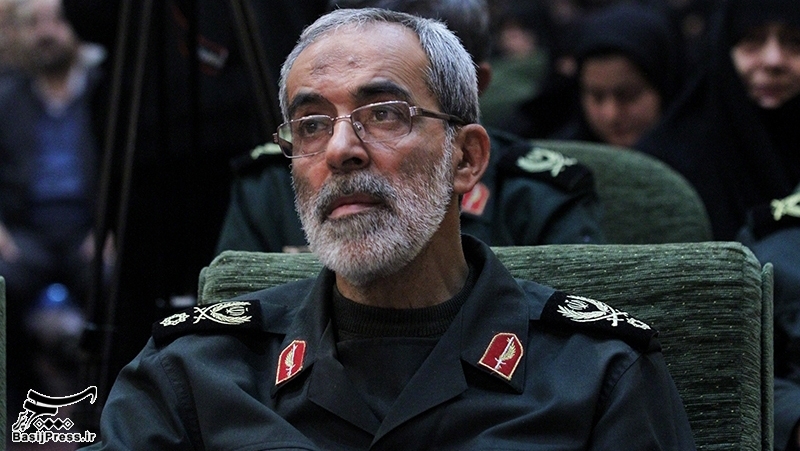
Molavi Fazl al-Rahman Kouhi, an outspoken Sunni cleric in Iran’s Sistan-Baluchistan Province, was released from detention on $31,000 USD bail on April 10, 2017 after being questioned for a week in the Intelligence Ministry’s office in the capital city of Zahedan, the Center for Human Rights in Iran (CHRI) has learned.
According to the Baloch Activists Campaign (BAC), Kouhi, the Friday prayer leader of Peshamag had issued a fatwa (Islamic religious ruling) against fighting in the Syrian civil war and accused Iran’s Islamic Revolutionary Guard Corps (IRGC) of “taking advantage of poor Sunni youths” by dispatching them as soldiers to the war-torn country.
“The authorities summoned Molavi Kouhi over the telephone and said he must appear at Branch 2 of the Special Clergy Court in Mashhad,” a source close to Kouhi told CHRI on April 8. “He respected the law and complied, but they arrested him without any reason or charges.”
“In other words, both his summons and his treatment by the court were unconventional and unlawful,” he said.
On April 5, Zahedan’s Prosecutor Ali Movahdi Rad said Kouhi had been summoned after being given “several warnings about minding national solidarity” and accused him of “making angry speeches against internal and external security issues” and “inviting people to join terrorist groups.”
In the last Friday prayer sermon he gave before being arrested, Kouhi criticized the IRGC for allegedly trying to win support from Iranian Sunni clerics by exempting them from military service and paying them to vacation in Syria.
“Any cleric who goes to Syria is not a cleric,” said Kouhi. “He’s a tyrant.”
On April 5 and 6, protesters set tires on fire to block a major commercial transit highway on the outskirts of the southern port of Chabahar and demanded Kouhi’s release, BAC reported.
Many shopkeepers in Peshamag and nearby towns Sarbaz Kalat, Rasak, Jakigoor, Bidlad and Nassirabad meanwhile closed their businesses in solidarity.
Iran’s leading Sunni cleric and Friday prayer leader of Zahedan, Molavi Abdolhamid Ismaeelzahi, also urged the authorities to release Kouhi, CHRI has learned.
In February 2017, Molavi Abdolhamid told CHRI that he has been banned from traveling anywhere except Zahedan by officials of the Shia-dominated Islamic Republic.
“I’ve never asked anyone for permission and I don’t think it’s appropriate for me to do so,” he said. “Anyone should be free to travel wherever he wants, but conditions are such that I’m not allowed to go anywhere from Zahedan, except Tehran.”
“The reason is small-mindedness,” he added. “It creates problems so I don’t travel.”

 Ailing Human Rights Lawyer Granted Brief Furlough
Ailing Human Rights Lawyer Granted Brief Furlough
 More than two years after his arrest and torture by Iran’s Islamic Revolutionary Guard Corps (IRGC), reformist journalist
More than two years after his arrest and torture by Iran’s Islamic Revolutionary Guard Corps (IRGC), reformist journalist 
 In the six months since she was released from a three-week detention, Iranian Kurdish children and women's rights activist
In the six months since she was released from a three-week detention, Iranian Kurdish children and women's rights activist 

 Mahvash Sabet Finally Free But State-led Persecution of Baha’i Community Continues
September 18, 2017—The Center for Human Rights in Iran (CHRI) welcomes the release of the Baha’i leader, Mahvash Sabet, who was unjustly imprisoned in Iran for 10 years on the sole basis of her religion. CHRI calls
Mahvash Sabet Finally Free But State-led Persecution of Baha’i Community Continues
September 18, 2017—The Center for Human Rights in Iran (CHRI) welcomes the release of the Baha’i leader, Mahvash Sabet, who was unjustly imprisoned in Iran for 10 years on the sole basis of her religion. CHRI calls  “We never betrayed our country and never will.”
“We never betrayed our country and never will.”
 Arya Aramnejad Says Repression Has Continued Under New President
Arya Aramnejad Says Repression Has Continued Under New President
 A reformist political activist who fled Iran in 2011 after years of being harassed by the Intelligence Ministry was summoned to the Revolutionary Court in Evin Prison upon returning to the country.
A reformist political activist who fled Iran in 2011 after years of being harassed by the Intelligence Ministry was summoned to the Revolutionary Court in Evin Prison upon returning to the country. In her first interview since being released from Evin Prison on October 31, 2017,
In her first interview since being released from Evin Prison on October 31, 2017, 


 After four months in arbitrary detention, Iranian journalists
After four months in arbitrary detention, Iranian journalists 






